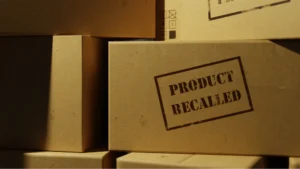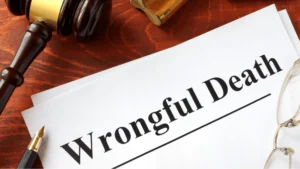
Homeowner vs. Trespassers: Tips from Kansas Premises Liability Lawyers
Homeownership comes with both privileges and responsibilities. One aspect of these responsibilities involves understanding homeowner liability concerning trespassers. When is a visitor legally considered a trespasser? What are the obligations and rights of homeowners with respect to trespassers as compared to those who have been invited? In this article, we look at the legal boundaries surrounding homeowner liability in scenarios involving trespassers, emphasizing the importance of knowing your rights and responsibilities as a homeowner. Even if you are not a homeowner, understanding how liability works in these scenarios can benefit you if you are injured on someone else’s property. Defining Trespassers and Licensees First and foremost, it’s essential to distinguish between a trespasser, a licensee, and an invitee. An invitee is someone you have invited to your property. A licensee is someone who enters your property with your consent but for their purposes. A trespasser, on the other hand, enters your property without permission. Different legal standards apply to each category, affecting a homeowner’s liability. Trespasser Liability Generally, homeowners owe the least duty of care to trespassers. However, it doesn’t mean they can be entirely reckless. Homeowners are not allowed to intentionally harm trespassers by setting booby traps or by intentionally creating dangerous conditions.. But the threshold for liability is relatively high, and it typically requires intentional misconduct or gross negligence on the homeowner’s part. Attractive Nuisance Doctrine One exception to the limited duty of care toward trespassers is the Attractive Nuisance Doctrine. This legal principle states that homeowners must take reasonable precautions to protect children from dangerous conditions if they are likely to be attracted to them. Examples include unfenced swimming pools, construction sites, or hazardous play equipment. Implied Licensees: Legitimate Trespassers In some cases, a visitor who enters without permission might be considered an implied licensee. This occurs when the homeowner knows about the trespasser’s presence but doesn’t take any action to remove them. As a result, this individual is treated with the same standard of care as a licensee. Duty to Warn and Discover Homeowners also have a duty to warn or discover dangers on their property that could harm any lawful visitors. This responsibility extends to licensees and even invited guests. If a licensee is injured by something not known to them, then they may be able to seek compensation for damages However, trespassers fall outside this category, and homeowners are not obligated to warn them or ensure their safety. How to Protect Your Rights To safeguard your rights as a homeowner, consider these steps: Post Signs: Clear and conspicuous “No Trespassing” signs can help establish that trespassers knowingly entered your property against your wishes. Secure Hazardous Areas: Prevent access to areas that could pose dangers, such as pools or construction sites, by installing proper fencing and barriers. Know Local Laws: Familiarize yourself with your state’s specific laws regarding trespassers and homeowner liability. Document Incidents: If you face recurring issues with trespassers, document incidents and any actions you take to address them. Seek Legal Advice: Consult with a legal professional to understand the nuances of your state’s trespasser laws and your rights and responsibilities as a homeowner. Injured on Someone Else’s Property? If you find yourself or a loved one injured on someone else’s property, it’s essential to take certain steps to protect your rights and seek compensation for the damages. First, make sure to seek immediate medical attention. Your well-being should be your top priority. Document the accident scene, your injuries, and any other relevant details as thoroughly as possible. It’s crucial to gather evidence that can support your claim later on. Additionally, if there were any witnesses to the incident, obtain their contact information, as their testimony may be valuable. Afterward, consider consulting a knowledgeable premises liability attorney to understand your legal options and the best course of action. An experienced attorney can guide you through the process and help you pursue the compensation you deserve. Our Premises Liability Lawyers are Here to Help Understanding the legal boundaries of homeowner liability concerning trespassers is crucial for responsible homeownership. While the duty of care is relatively low for trespassers, homeowners must still exercise caution, especially when potentially dangerous conditions exist on their property. If you or a loved one has been injured on someone else’s property, you may be able to seek compensation for the damages. Contact our Kansas City area premises liability lawyers today.





